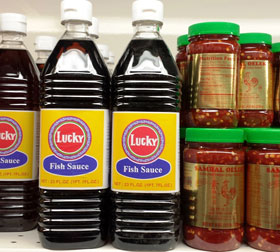Fish-filled diet causing elevated mercury levels in Asian-Americans
By Monica Eng

Fish-filled diet causing elevated mercury levels in Asian-Americans
By Monica EngAsian-Americans eat a lot of fish.
And while that can contribute to better health, it can also lead to elevated mercury levels in the blood. That’s because industrial pollution has contaminated waterways and the fish living in it. This makes some traditional Asian eating patterns risky, especially for women of childbearing age.
Elevated mercury levels in pregnant and nursing women can impair the cognitive development of their children. And high levels in older adults can increase risk of cardiovascular disease.
When researchers studied blood and hair samples of Asian Americans in Seattle and New York they found elevated mercury levels in one-third to nearly half of all subjects, respectively.
Preliminary studies have shown similar issues in Chicago Asians, according to environmental health physician Dr. Susan Buchanan. This week the University of Illinois at Chicago announced that Buchanan and her colleagues have received a $2.6 million grant from the National Institute of Environmental Health to study the issue further.
The five-year research project will work with Asian community groups to gather and better gauge mercury exposure. But the scientists also hope to explore the cultural traditions and practices around fish consumption.

And then there’s the issue of fish head soup.
“We have learned from our preliminary interaction with Asian community groups in Chicago that fish head soup is very popular during breastfeeding,” she said. “We’re wondering if that might lead to elevated mercury [in mother’s systems] during breastfeeding, which would also be a concern because mercury does appear in breast milk.”
The researchers are also concerned about exposure to PCBs through fish consumption, But because the chemicals are difficult to measure in the body, they will do PCB testing on fish from local markets where the participants shop.
After the UIC scientists have identified some of the most common sources of mercury exposure in the local Asian diet, Buchanan says they plan to craft interventions. These will include a text message app that will remind women about the safest fish choices during their childbearing years.
Monica Eng is a WBEZ food and health reporter. Follow her at @monicaeng or write to her at meng@wbez.org